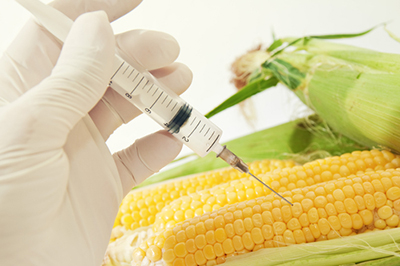
The state of Washington has accused opponents of a ballot initiative that would label groceries containing genetically engineered ingredients of hiding their donors in a campaign that has seen a flood of out of state money from big corporations such as Monsanto.
On Wednesday, Washington Attorney General Bob Ferguson filed a lawsuit alleging that the Grocery Manufacturers Association violated the state’s campaign finance laws by failing to disclose the sources of its $7.2 million in contributions to No on 522, the main group campaigning against the labeling initiative.
Washington’s Initiative 522 would require groceries containing genetically engineered ingredients and genetically engineered seed stocks to be labeled as such. Genetically engineered foods are also called Genetically Modified Organisms, or GMOs.
The Grocery Manufacturers Association is a trade group that represents more than 300 food and beverage companies, including Pepsico, Coca-Cola and Kraft, which joined big biotech firms in donating millions to defeat a similar GMO labeling initiative in California last year.
Ferguson is asking a state court for a temporary restraining order to force the trade association to reveal the identities of the donor companies it has shielded from the public eye before voters go to the polls in November.
Evidence Reveals Effort to Hide Donors
Two months after California voters rejected a GMO labeling initiative last year, the Grocery Manufacturers Association directed its employees to “scope out a funding mechanism to address the GMO issue . . . while better shielding individual companies from attack for providing funding,” according to evidence cited in the attorney general’s complaint.
Support for the California labeling initiative dropped dramatically after $46 million in donations from companies such as Dupont, Monsanto and Pepsico flooded the campaign, and California voters rejected GMO labeling by a narrow margin last November.
In February, Grocery Manufacturers Association CEO Pamela Bailey issued a memo to establish a “Defense of Brand Strategic Account” to raise money from member companies to oppose Initiative 522 while only reporting the trade association’s name to state campaign finance authorities, according to the complaint.
In a statement, the Grocery Manufacturers Association said it is reviewing its actions and relevant state laws and will “continue to cooperate with state authorities to fully resolve the issue as promptly as possible.”
In a statement, the Yes on 522 campaign demanded that their opponents drop their anti-labeling advertisements until their donors are made public. No on 522 did not respond to an inquiry from Truthout by the time this article was posted.
Monsanto and Friends vs. Natural and Organics Companies
The battle over GMO labeling in Washington features many of the same agribusiness and natural products companies that compete in supermarkets and butted heads over the California initiative last year.
The No on 522 campaign has raised $17 million total so far and has come under fire for taking millions in donations from powerful out-of-state corporations in the GMO and pesticide business. Of those companies that have come clean on their contributions, the biotech giant Monsanto has donated $4.8 million, and Dupont has donated $3.2 million, while Bayer CropScience and Dow Agrosciences each gave $591,654, according to Truthout’s review of state records.
The Yes on 522 campaign has raised almost $5.6 million from organic consumer groups, anti-GMO groups, alternative health firms and organics companies such as Nutiva, Natures Path Foods and Annie’s Inc. Dr. Bronner’s Magic Soaps tops the list with $1.8 million in contributions to Yes on 522.
Six other campaign committees are also supporting Initiative 522 in Washington.
Last month, 66 percent of Washington voters polled said they would “definitively” or “probably” vote for the GMO labeling initiative.
Media that fights fascism
Truthout is funded almost entirely by readers — that’s why we can speak truth to power and cut against the mainstream narrative. But independent journalists at Truthout face mounting political repression under Trump.
We rely on your support to survive McCarthyist censorship. Please make a tax-deductible one-time or monthly donation.